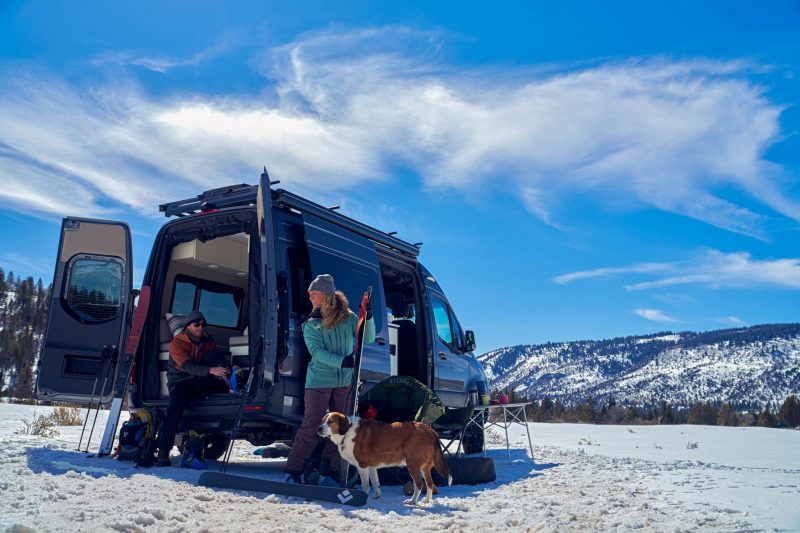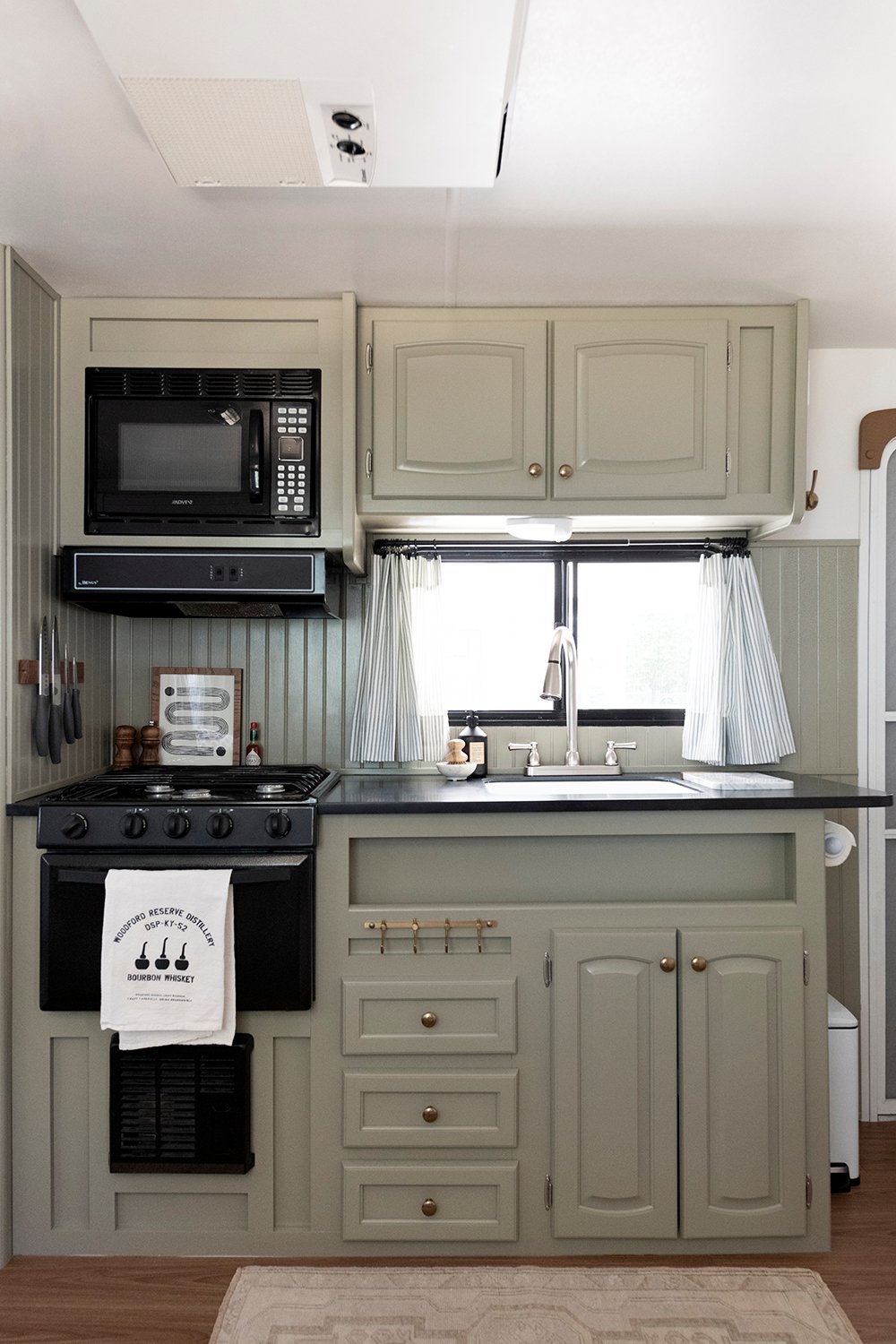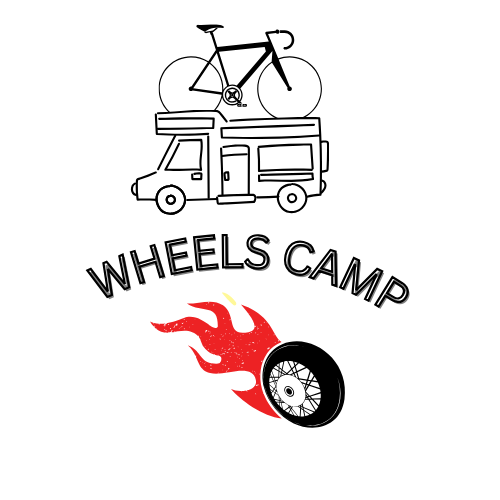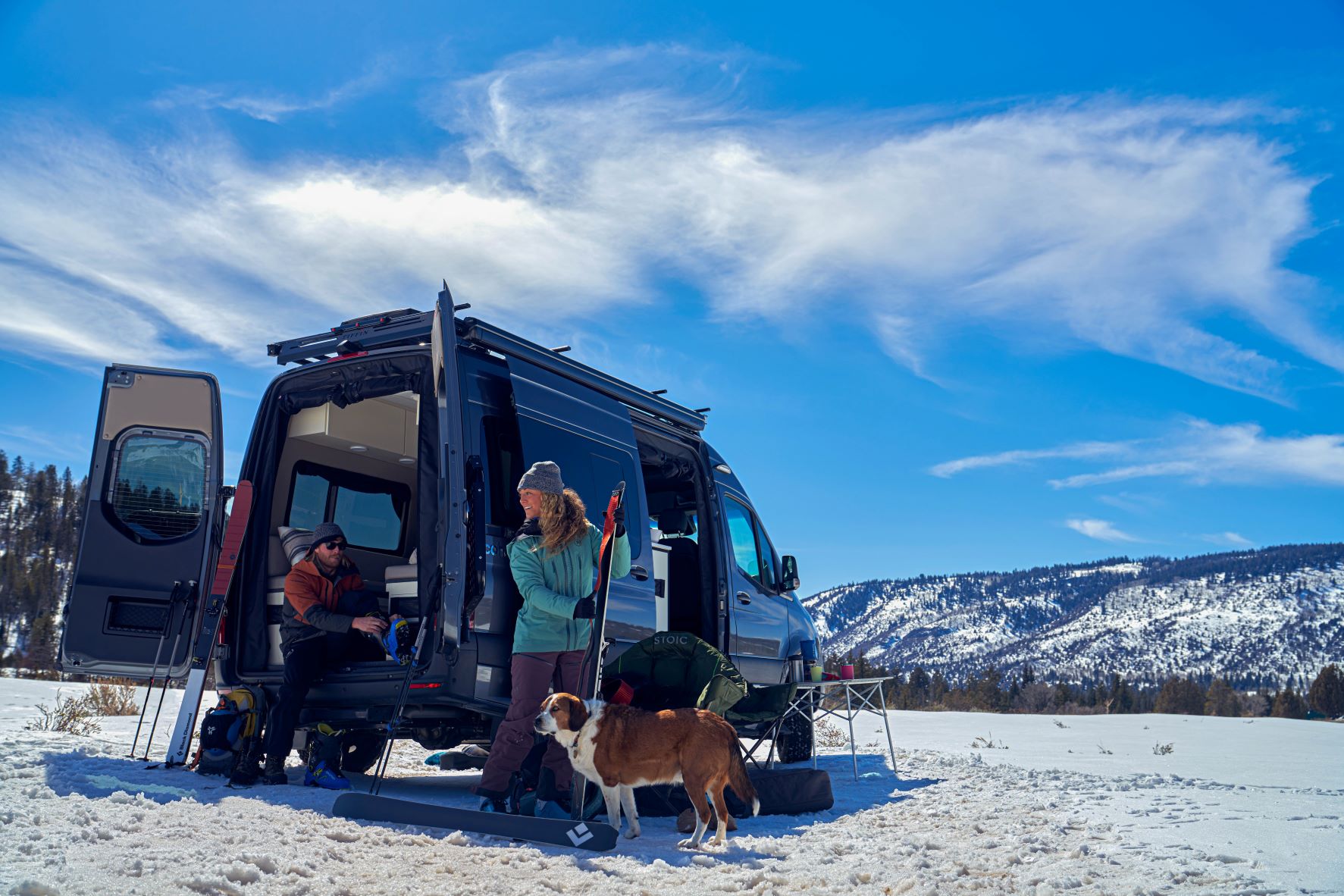You cannot park a Class B RV just anywhere; local parking laws and regulations must be followed. Always check the specific rules of your intended parking location.
Class B RVs, commonly known as camper vans, offer a great balance of mobility and comfort for road trip enthusiasts. Despite their relatively compact size, which often allows for more flexible parking options than larger RVs, there are still restrictions to consider.
Owners must navigate a variety of parking regulations that can differ greatly from city to city and from public lands to residential areas. Parking availability also depends on factors such as the time of day, the duration of stay, and the purpose of the vehicle’s use. Therefore, it’s essential to research and abide by the local laws and guidelines for RV parking to ensure a hassle-free adventure. Proactive planning can lead to finding convenient spots that cater to the needs of Class B RV travelers.

Credit: www.generalrv.com
Class B RV Basics
Class B recreational vehicles (RVs) offer a mix of homeliness and agility. Unlike their larger cousins, Class A, and C, these compact rigs balance comfort and mobility. Perfect for solo travelers or couples. They easily navigate cities, mountains, and more. Let’s dive into their key features and advantages.
Key Features And Size
Class B RVs, often dubbed camper vans, embody a minimalistic design. They’re typically built on van chassis such as the Mercedes Sprinter or Ford Transit. Expect a sleek, manageable size.
- Length: Ranges from 18 to 24 feet
- Width: Around 8 feet
- Height: 9 to 11 feet
These dimensions mean you can park your Class B RV in regular parking spots. Their features ensure you have everything needed for a comfortable journey. They come with beds, a kitchenette, and a bathroom.
| Feature | Description |
|---|---|
| Living Space | Compact yet functional with convertible areas for sleeping, dining, and lounging |
| Kitchenette | Includes essentials like a fridge, sink, and stove |
| Bathroom | Wet bath setups are common, with toilet and shower in one space |
Advantages For Travelers
Class B RVs shine for many reasons. Their small size eases driving and parking. Travelers enjoy lower fuel costs compared to bigger RVs. You’ll find a Class B RV perfect for fast-paced adventures or long-term travel.
Many national parks and campgrounds have spots made for Class B sizes. So, you get closer to nature and the beauty around you. Despite their size, they don’t skimp on amenities and comfort.
Owners love the versatility of a Class B RV. Zip through urban areas or cozy up in remote landscapes. Enjoy the freedom to roam with everything you need.
Common Misconceptions About RV Parking
Navigating the open road in a Class B RV stirs up dreams of boundless freedom. Many believe these compact homes on wheels can tuck in just about anywhere. Yet, misconceptions about RV parking abound. Let’s bust some myths and set the record straight on Class B RV parking laws and etiquette. Understanding the rules avoids fines and ensures harmonious journeys for everyone.
Myth Vs. Reality
It’s crucial to distinguish fact from fiction when it comes to RV parking. Below are some common myths and the actual truths behind them:
- Myth: Small RVs can park overnight anywhere. Reality: Legal restrictions apply.
- Myth: All Walmart parking lots welcome RVs for overnight stays. Reality: Store managers decide on this policy.
- Myth: Rest areas are fair game for long-term parking. Reality: Most have strict time limits.
The Idea Of ‘Anywhere Parking’
The term ‘anywhere parking’ misleads. Here’s why:
| Perception | Reality Check |
|---|---|
| Rural areas have no parking laws. | Even remote spots have regulations to follow. |
| Streets are fair game after dark. | City ordinances often prohibit overnight street parking. |
| Nature spots are always available. | Parks may require permits and have designated spots. |
RV parking rules vary widely. Always check local laws and guidelines to enjoy the journey without hiccups.
Legal Landscape For Parking An RV
The thought of hitting the open road with a Class B RV brings a sense of freedom and adventure. Nonetheless, parking your home-on-wheels isn’t as simple as pulling over anywhere you fancy. You must navigate the legal terrain with care. Before setting the parking brake in a new location, it’s crucial to understand the rules that govern where you can and cannot park your RV.
Local Ordinances And Laws
Local jurisdictions have distinct regulations about RV parking. It’s essential to check specific local ordinances before settling down for the night. Many cities and towns prohibit RV parking on public streets, especially overnight. Others may allow it under certain conditions, such as for loading and unloading purposes.
- Look for RV parking signs and restrictions.
- Respect no-parking zones to avoid fines.
- Be mindful of street cleaning schedules.
Homeowners’ associations (HOAs) often enforce their own rules. If visiting someone in a community with an HOA, align with their regulations to stay out of trouble.
Understanding State Regulations
State rules can influence where you park your RV. State-owned lands, including parks and beaches, might have designated RV spaces. These spots are your best bet while exploring natural beauty. They usually come with amenities, enhancing your stay.
To grasp these regulations, consult state websites or contact park services. They provide details on length of stay, permits required, and any associated costs. Here’s what you should do:
- Find the state’s official park website.
- Read up on RV-specific guidelines.
- Secure necessary permits in advance.
Rest areas along highways are an option for short-term parking. However, many have limits on how long you can remain parked. Always heed posted signs regarding time restrictions.
Residential Areas And Hoa Restrictions
Exploring the charm of the open road in your Class B RV sounds thrilling. Yet, when it comes to parking in residential areas, a new set of rules apply. Homeowners associations (HOAs) often have strict guidelines. Your property may seem like free rein, but local regulations can apply there too. Understanding these can make your travels hassle-free.
Homeowners Association Rules
Each HOA has unique restrictions. Many HOAs forbid RV parking in plain sight. This often applies to driveways or streets. Why? HOAs strive to maintain a certain aesthetic. An RV could disrupt this. Before parking, always check your HOA’s covenants, conditions, and restrictions (CC&Rs). Non-compliance can lead to fines or other penalties.
- Look for specific RV rules in your HOA’s CC&Rs
- Avoid penalties by following HOA guidelines
- Confirm if temporary parking is allowed for loading and unloading
Parking On Your Property
It’s your land, but local zoning laws may limit RV parking. Some areas allow it, while others have strict bans. These rules help control neighborhood appearance and safety. Rules may cover:
- How long you can park your RV
- Required fencing or screening
- Distance from the street or neighbors’ property
Always confirm with your city or county. This check prevents violations. Some regions allow temporary parking for specific times. Or they might require your RV to be behind a fence. Breaking these rules can result in fines.
Navigating Public Lands And Campgrounds
National Parks And Forests
National Parks and Forests are natural treasures. Class B RVs are often welcome. Specific campgrounds within parks cater to RVs. Not all places have the same rules. Below, find key details for RV campers:
- Size Restrictions: Check the park’s RV length limits.
- Reservations Recommended: Secure a spot early. National parks fill up fast.
- Amenities Vary: Some have full hookups; others offer basic services.
- Stay Limits: Most allow stays for 14 days. Longer stays may not be permitted.
BLM Land And Rv-friendly Campsites
The Bureau of Land Management (BLM) oversees vast open spaces. Here, RVers find freedom. Most BLM lands allow dispersed camping. This means parking your RV off the beaten path. Consider these points:
- Free Camping: Many spots do not charge fees.
- Leave No Trace: Respect the land. Clean up after yourself.
- No Services: Prepare for no water, electric, or dump stations.
- Access Roads: Some roads aren’t RV-friendly. Drive with care.
Class B RV owners have a wealth of options for parking and enjoying nature. Always understand the rules and preserve the beauty of these public lands for others to enjoy.
Urban Parking Challenges
Exploring cities in a Class B RV offers an urban adventure unlike any other. But finding a spot to park can be a high-stakes game of hide-and-seek. Urban Parking Challenges are real. They come with rules that can stump even seasoned RVers. Before you weave through city streets or aim for that perfect parking spot, it’s key to understand these challenges.
City Streets And Overnight Parking
When the sun sets, city streets transform. What often seems like a free-for-all can change overnight. City regulations often include:
- Time limits: Many streets have strict rules on how long you can stay.
- Permits: Some cities require a special permit to park overnight.
- Street cleaning: Watch for signs that tell when you must move your RV for cleaning.
It’s wise to check local laws before you park. Unmarked spots don’t always mean free parking.
Private Property And Retail Store Lots
Many think the vast parking lots of retail stores offer a haven. But, these spaces aren’t public property. Parking rules include:
| Location | Permission Needed | Stay Duration |
|---|---|---|
| Retail Stores | Often Required | Limited Hours |
| Malls | May Vary | Short-term |
| Restaurant Lots | Seldom Allowed | Customer Use Only |
Before you turn in for the night, ask a manager. Get permission and know the rules to avoid a knock on your door at 3 AM.
Boondocking In A Class B Rv
Imagine waking up to the sounds of nature in a cozy Class B RV, surrounded by the beauty of untouched wilderness. This thrilling experience is known as boondocking or dispersed camping. It’s the practice of parking your RV off the grid, without the luxury of hookups and amenities.
The Etiquette Of Dispersed Camping
When you set out into the wild, knowing how to boondock responsibly is key. Consider the unwritten rules that help maintain peace and serenity in nature.
- Respect the land by only using existing campsites.
- Keep the noise down to avoid disturbing wildlife and fellow campers.
- Manage waste properly by disposing of it according to regulations.
- Always leave the site better than you found it.
Sustainability And Leave No Trace Principles
Boondocking in a Class B RV is not just about freedom; it’s about sustainability. Practicing Leave No Trace principles ensures nature stays pristine for generations to come.
| Leave No Trace Principle | Application in Boondocking |
|---|---|
| Plan and Prepare | Research the area and know the regulations in advance. |
| Travel and Camp on Durable Surfaces | Use established spots and avoid creating new ones. |
| Dispose of Waste Properly | Carry out all trash, leftover food, and waste water. |
| Leave What You Find | Do not take natural objects or disturb cultural artifacts. |
| Minimize Campfire Impacts | Use a camp stove for cooking and keep fires small. |
| Respect Wildlife | Observe from a distance; do not follow or feed them. |
| Be Considerate of Other Visitors | Yield to others on the trail and avoid loud noises. |
Techniques For Finding Legal Parking Spots
Parking your Class B RV poses a unique challenge. You must know where it’s legal to park. With the right strategy and tools, you can discover the perfect spot to rest. To transform a cumbersome parking ordeal into a breeze, apply these effective techniques.
Apps And Resources For Rvers
Stay ahead of the game with smart tech. The digital world offers a treasure trove of apps for RV enthusiasts. These resources provide real-time information on parking.
- AllStays: guides you to campsites, RV parks, and overnight parking.
- ParkAdvisor: a comprehensive database of RV-friendly parking spots.
- Boondocking: locates free, legal parking spots for off-the-grid adventures.
Don’t overlook the reviews and tips from fellow RVers within these apps. Their insights are invaluable.
Developing A Parking Strategy
To park without a hitch, planning is essential. Understand the area’s rules. Some neighborhoods have signage indicating parking restrictions. Inquire with local businesses; they might permit overnight parking.
- Research Local Laws: Check online or call ahead to avoid fines.
- Ask Locals: Engage with the community for insider tips.
- Plan Ahead: Use apps to find suitable spots before arriving.
Remember, safety first. Opt for well-lit, secure areas. With these strategies, your RV adventures will be smooth and compliant.
Real-life Experiences And Tips From Class B Owners
Welcome to a slice of the nomadic life through the eyes of those who’ve lived it! Today, we’re exploring the world of Class B RVs. Class B owners are noted for their adaptability and the compact convenience of their vehicles. Glean insights from their journeys and understand the realities of parking these nimble homes-on-wheels.
Stories Of Success And Caution
Class B RVs often promise freedom and ease of travel. Yet, knowing where to park is key. Owners share tales of peaceful nights in serene locations. They’ve parked in places ranging from welcoming campgrounds to remote wilderness spots. Some have even found rest in bustling city streets, thanks to the unassuming size of their RVs. Success stories abound, but cautionary tales remind us that research and preparedness are non-negotiable.
- Walmart parking lots can be a boon, but policies vary by location.
- Some owners found bliss in Bureau of Land Management (BLM) areas, free for up to 14 days.
- Unexpected knocks on the window from authorities remind us to always check local ordinances.
Advice From Seasoned RV Travellers
Veteran RV owners love to pass on nuggets of wisdom. Their adventures have honed skills in selecting the perfect spot to park for the night. Listen closely to their advice.
- Always have a plan B. Locations may change or fall through.
- Use apps and resources to find RV-friendly parking spots.
- Get to know the local laws and regulations. Ignorance isn’t bliss on the road.
- Respect the space. Leave no trace to ensure spots remain open to fellow RVers.
Incorporate these insights into your travel plans. Embark on your journey with confidence. Remember, each parking space tells a story, make sure yours is one of success.
Planning Ahead: Ensuring A Stress-free Trip
An unforgettable adventure on the road can quickly become a stressful affair without proper planning. For those who seek the freedom of the open road with a Class B RV, knowing where you can park is essential for a serene journey. Whether settling down for a single night or charting a cross-country tour, detailed planning ensures peace of mind.
Route Planning And Research
Before revving up your Class B RV, chart your course with care. Map out your stops and consider RV-friendly locations:
- Rest stops often welcome RVs for short breaks.
- Campgrounds are equipped for overnight stays.
- Retail locations may allow overnight parking.
Online tools and apps offer a wealth of information. They highlight spots where parking your Class B RV is allowed. Remember, some cities have strict regulations against parking large vehicles overnight. Always check local laws to avoid surprises.
Assess potential parking fees ahead of time. Arrange your budget accordingly. Confirm availability at campgrounds by booking in advance, especially during peak travel seasons. Utilize GPS and road atlases to navigate routes which are RV-friendly, avoiding low bridges or narrow roads.
Emergency Preparedness
On-road uncertainties require a robust emergency plan. Include these essentials in your RV:
- First-Aid Kit: Be ready for minor injuries.
- Emergency Roadside Kit: Include flares, jumper cables, and tools.
- Extra Food and Water: Pack non-perishable items.
- Contact Information: Have a list of emergency numbers.
Keep an eye on weather forecasts and road conditions. Both can change rapidly, affecting your parking options. A ready-to-go contingency plan ensures smooth handling of unexpected events. Inform someone about your travel itinerary. A Class B RV offers flexibility, but it is not exempt from the laws and cues of Mother Nature. Therefore, planning with a margin for error can make all the difference. With effective route planning and a solid emergency strategy, your RV escapades are set to be sensational and hassle-free.

Credit: roomfortuesday.com
Conclusion
Exploring with a Class B RV offers incredible flexibility, but parking freedoms vary. Local regulations, campsite rules, and courtesy should always guide where you settle for the night. For a stress-free journey, research beforehand and respect your surroundings that’s the key to enjoying the nomadic lifestyle responsibly.Safe travels!

